AGRINFO supporting a better understanding of EU market access rules: the case of Madagascar.
- 10/06/2025
- Posted by: Christelle Bento
- Category: ACP EN, Corp EN, Headline, News
No Comments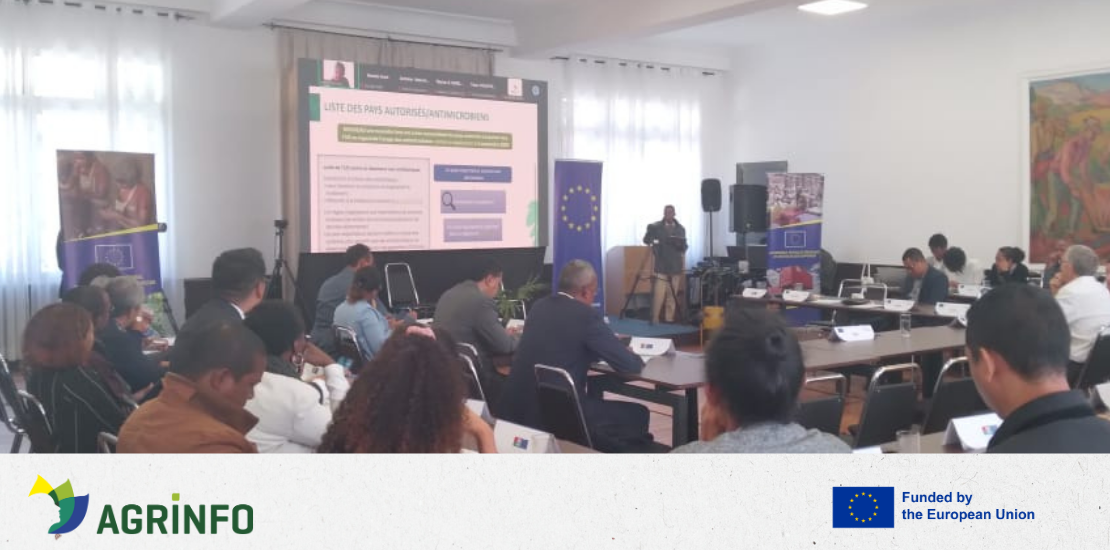 Implemented by COLEAD with the support of the European Union, the AGRINFO programme is a strategic information service designed to help low- and middle-income partner countries understand, anticipate, and adapt to changes in European regulations impacting their agri-food exports. Through its digital platform, newsletter, regulatory digest and interactive Q&A service, AGRINFO gives competent authorities, private sector actors and professional organisations direct access to clear, up-to-date, actionable regulatory intelligence. On 20 May 2025, as part of Europe Week celebrations, the European… +
Implemented by COLEAD with the support of the European Union, the AGRINFO programme is a strategic information service designed to help low- and middle-income partner countries understand, anticipate, and adapt to changes in European regulations impacting their agri-food exports. Through its digital platform, newsletter, regulatory digest and interactive Q&A service, AGRINFO gives competent authorities, private sector actors and professional organisations direct access to clear, up-to-date, actionable regulatory intelligence. On 20 May 2025, as part of Europe Week celebrations, the European… +COLEAD at Agroalimentaria 2025: Promoting structural actions in the Caribbean Region for a sustainable agri-food sector
- 10/06/2025
- Posted by: Christelle Bento
- Category: ACP EN, Corp EN, Headline, News
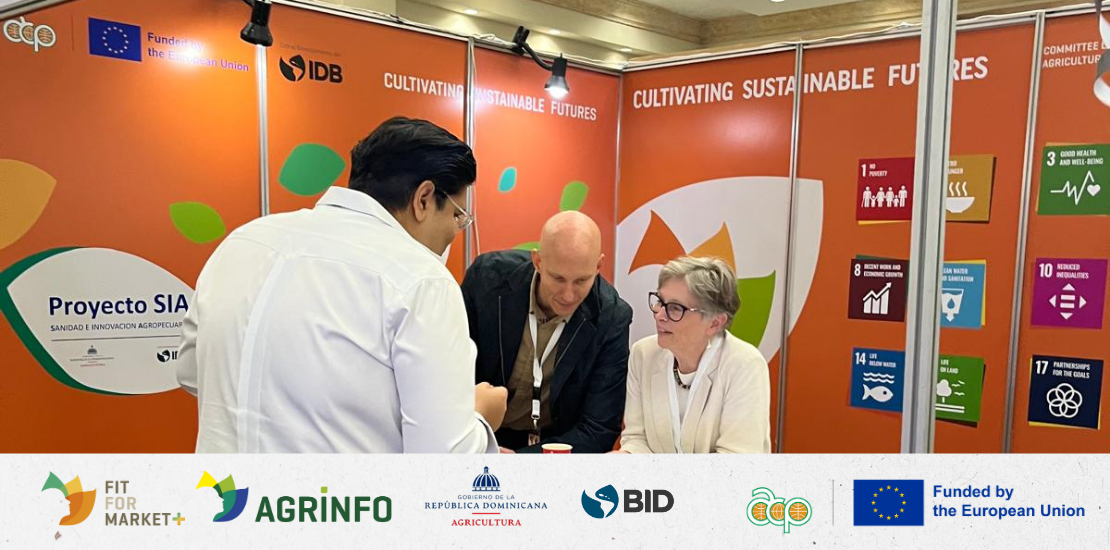 From 28 to 31 May 2025, COLEAD has participated in the Feria Agroalimentaria in Santo Domingo, the Dominican Republic’s flagship agri-food event. Organised by public and private institutions every two years, the event brings together over a hundred exhibitors and thousands of visitors, providing an essential platform for promotion, dialogue and cooperation. COLEAD had an institutional stand to inform participants about its activities and partnerships in the country. The aim of this presence is to raise the organisation’s profile and… +
From 28 to 31 May 2025, COLEAD has participated in the Feria Agroalimentaria in Santo Domingo, the Dominican Republic’s flagship agri-food event. Organised by public and private institutions every two years, the event brings together over a hundred exhibitors and thousands of visitors, providing an essential platform for promotion, dialogue and cooperation. COLEAD had an institutional stand to inform participants about its activities and partnerships in the country. The aim of this presence is to raise the organisation’s profile and… +Marlène Kindji: founder and director of Badémè Natural Foods, Championing natural, nutritious and locally sourced foods in Benin
- 10/06/2025
- Posted by: Christelle Bento
- Category: ACP EN, Corp EN, Headline, News
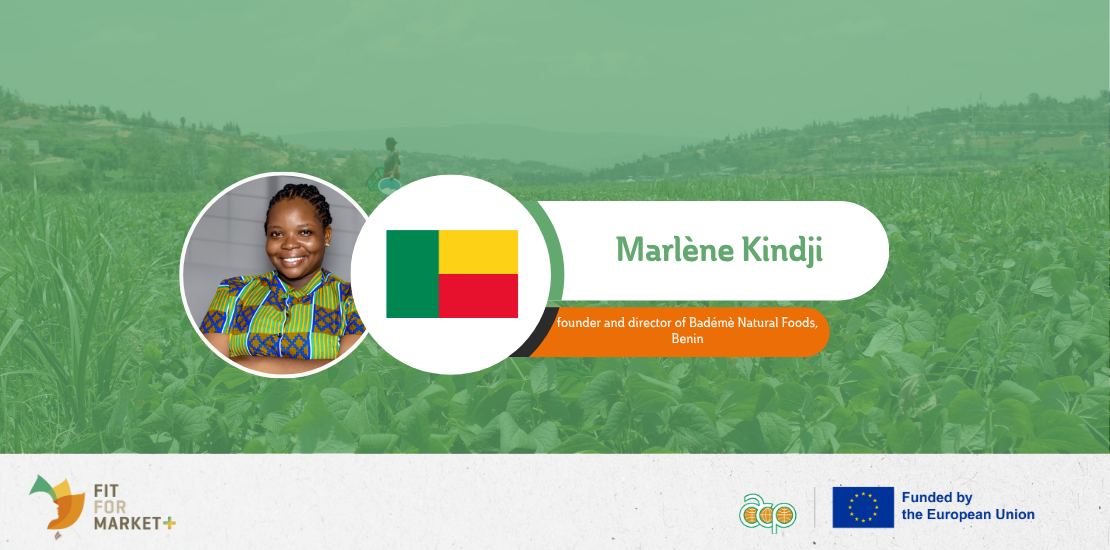 In the heart of Benin, Marlène Kindji is leading a transformation in how vegetables are preserved, valued, and consumed. As the Founder and Director of Badémè Natural Foods, Marlène has made it her mission to ensure that locally grown, perishable produce doesn’t go to waste but instead nourishes communities at home and across the diaspora. Badémè Natural Foods, established in 2017, was born out of a personal and pressing need. Marlène watched her mother, a market gardener, struggle to sell… +
In the heart of Benin, Marlène Kindji is leading a transformation in how vegetables are preserved, valued, and consumed. As the Founder and Director of Badémè Natural Foods, Marlène has made it her mission to ensure that locally grown, perishable produce doesn’t go to waste but instead nourishes communities at home and across the diaspora. Badémè Natural Foods, established in 2017, was born out of a personal and pressing need. Marlène watched her mother, a market gardener, struggle to sell… +Joshua Forte is the founder and director of Red Diamond Compost Inc. in Barbados. The company transforms organic waste and invasive species into effective, environmentally friendly soil and crop inputs.
- 10/06/2025
- Posted by: Christelle Bento
- Category: ACP EN, Corp EN, Headline, News
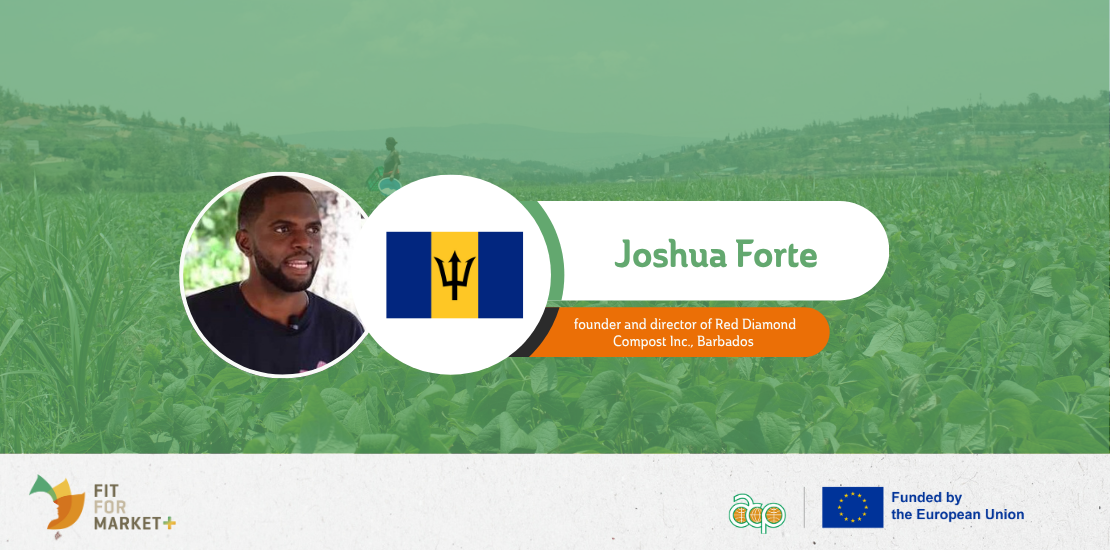 In Barbados and the wider Caribbean, agriculture faces increasing challenges: soil degradation, climate change, rising input costs, and food security concerns. Against this backdrop, entrepreneur Joshua Forte is building solutions that support farmers and gardeners in growing healthier food while protecting the environment. As founder and director of Red Diamond Compost Inc., Joshua Forte leads a social enterprise dedicated to regenerative agriculture, turning organic waste and invasive species into effective, eco-friendly soil and crop inputs. A vision rooted in soil… +
In Barbados and the wider Caribbean, agriculture faces increasing challenges: soil degradation, climate change, rising input costs, and food security concerns. Against this backdrop, entrepreneur Joshua Forte is building solutions that support farmers and gardeners in growing healthier food while protecting the environment. As founder and director of Red Diamond Compost Inc., Joshua Forte leads a social enterprise dedicated to regenerative agriculture, turning organic waste and invasive species into effective, eco-friendly soil and crop inputs. A vision rooted in soil… +Mapping of multistakeholder initiatives in Food and Nutrition Security and Sustainable Agriculture (FNSSA): The CEA-FIRST Consortium identifies key opportunities for strengthened EU-AU collaboration.
- 10/06/2025
- Posted by: Christelle Bento
- Category: ACP EN, Corp EN, Headline, News
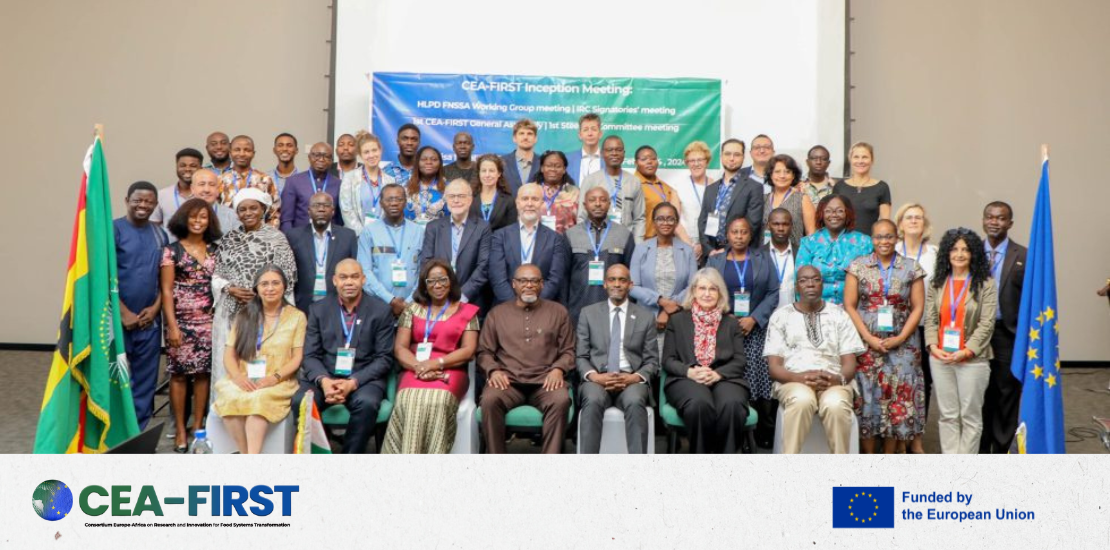 The CEA-FIRST Consortium identifies key opportunities for strengthened EU-AU collaboration. As part of the CEA-FIRST project aiming to establish a functional International Research Consortium (IRC) on FNSSA, a mapping report of multistakeholder initiatives (MSIs) active in the field of food and nutrition security and sustainable agriculture in Africa and Europe has just been finalized. Conducted as part of Work Package 3, the aim of this mapping exercise is to support the implementation of the IRC by identifying existing multi-stakeholder… +
The CEA-FIRST Consortium identifies key opportunities for strengthened EU-AU collaboration. As part of the CEA-FIRST project aiming to establish a functional International Research Consortium (IRC) on FNSSA, a mapping report of multistakeholder initiatives (MSIs) active in the field of food and nutrition security and sustainable agriculture in Africa and Europe has just been finalized. Conducted as part of Work Package 3, the aim of this mapping exercise is to support the implementation of the IRC by identifying existing multi-stakeholder… +Focus on agroecology in Guinea: highlights from two participatory workshops held in Mamou and Kindia
- 10/06/2025
- Posted by: Christelle Bento
- Category: ACP EN, Corp EN, Headline, News
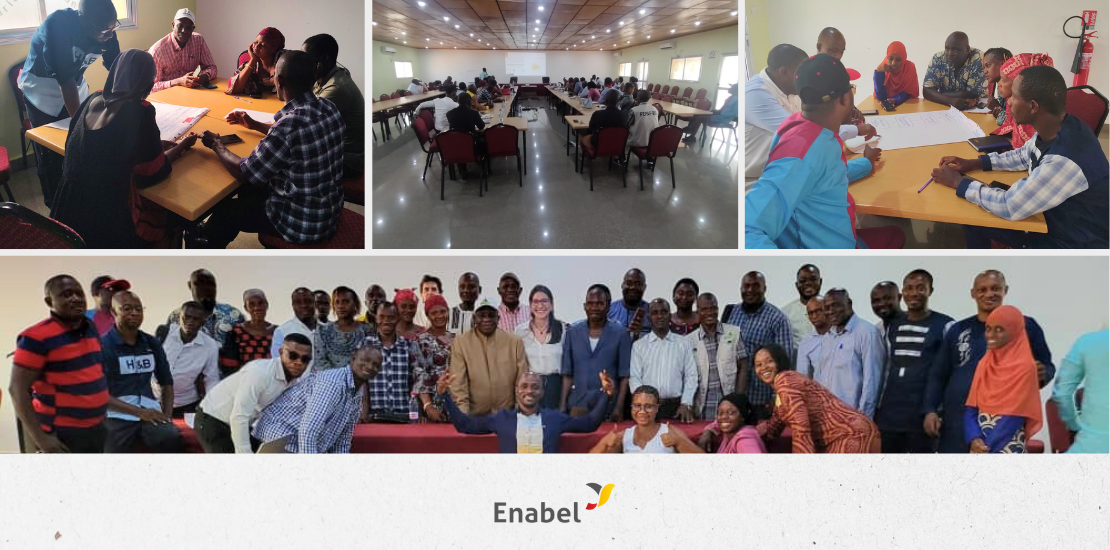 As part of the ENABEL Guinea-funded programme, ‘Strengthening the resilience of Guinean populations to climate, food and economic shocks through sustainable agricultural development’, COLEAD carried out its first field mission dedicated to the agroecological transition in the Mamou and Kindia regions. A foundational mission to support local value chains The project, which was launched in 2025, aims to improve the incomes of stakeholders in the potato, pineapple and vegetable farming value chains in a sustainable way, with a particular… +
As part of the ENABEL Guinea-funded programme, ‘Strengthening the resilience of Guinean populations to climate, food and economic shocks through sustainable agricultural development’, COLEAD carried out its first field mission dedicated to the agroecological transition in the Mamou and Kindia regions. A foundational mission to support local value chains The project, which was launched in 2025, aims to improve the incomes of stakeholders in the potato, pineapple and vegetable farming value chains in a sustainable way, with a particular… +EU Organic Regulation Updates: Enhancing Organic Production and Pest Control
- 10/06/2025
- Posted by: Christelle Bento
- Category: News
 Requirements regarding pesticide use under the new EU Organic Regulation The new Organic Regulation (EU) 2018/848 entered into application in January 2021 in the European Union (EU). For Third Countries, the initiation of certificate issuance under the new compliance regime, signifying the conclusion of the equivalence regime started in January this year. Some of the new requirements, including rules on the use of plant protection products, have implications for third countries. The list of plant protection products permitted for use… +
Requirements regarding pesticide use under the new EU Organic Regulation The new Organic Regulation (EU) 2018/848 entered into application in January 2021 in the European Union (EU). For Third Countries, the initiation of certificate issuance under the new compliance regime, signifying the conclusion of the equivalence regime started in January this year. Some of the new requirements, including rules on the use of plant protection products, have implications for third countries. The list of plant protection products permitted for use… +Senegal: Setting up a quality and traceability system for dried mangoes – the example of O’FRUTTI
- 10/06/2025
- Posted by: Christelle Bento
- Category: ACP EN, Corp EN, Headline, News
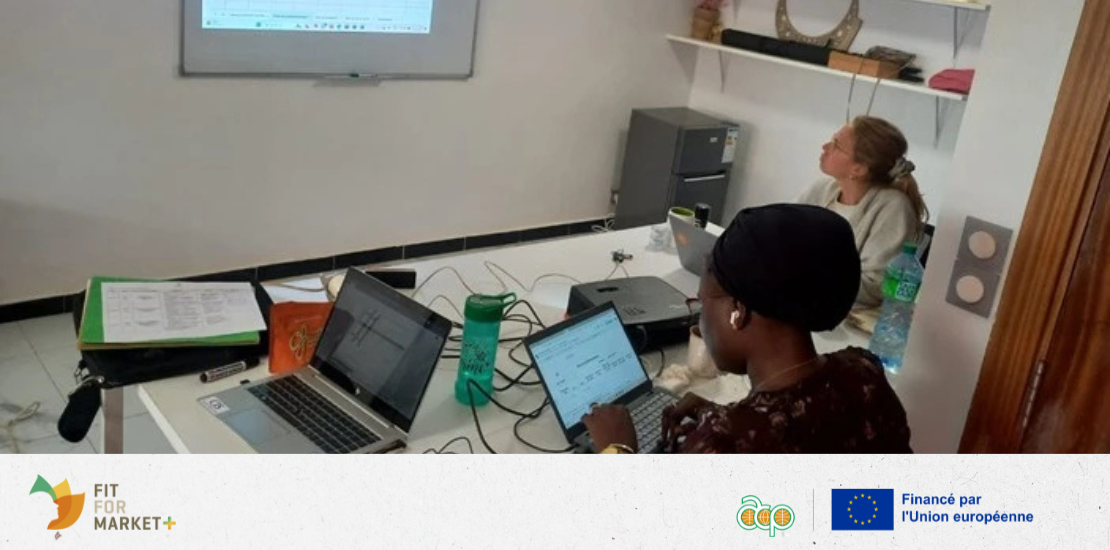 Dakar, May 2025 – As part of the Fit For Market Plus (FFM+) programme, COLEAD has provided post-training support to O’FRUTTI, a young Senegalese company specialising in mango processing. This intervention aims to structure the company’s quality and traceability management system, building on the knowledge acquired during a recent collective training on food safety principles. A young and ambitious company with market reach Founded in 2022, O’FRUTTI has quickly positioned itself on the European and local markets by focusing… +
Dakar, May 2025 – As part of the Fit For Market Plus (FFM+) programme, COLEAD has provided post-training support to O’FRUTTI, a young Senegalese company specialising in mango processing. This intervention aims to structure the company’s quality and traceability management system, building on the knowledge acquired during a recent collective training on food safety principles. A young and ambitious company with market reach Founded in 2022, O’FRUTTI has quickly positioned itself on the European and local markets by focusing… +Biodiversity & sustainable agriculture: The example of COMAKO in Côte d’Ivoire
- 10/06/2025
- Posted by: Christelle Bento
- Category: ACP EN, Corp EN, Headline, News
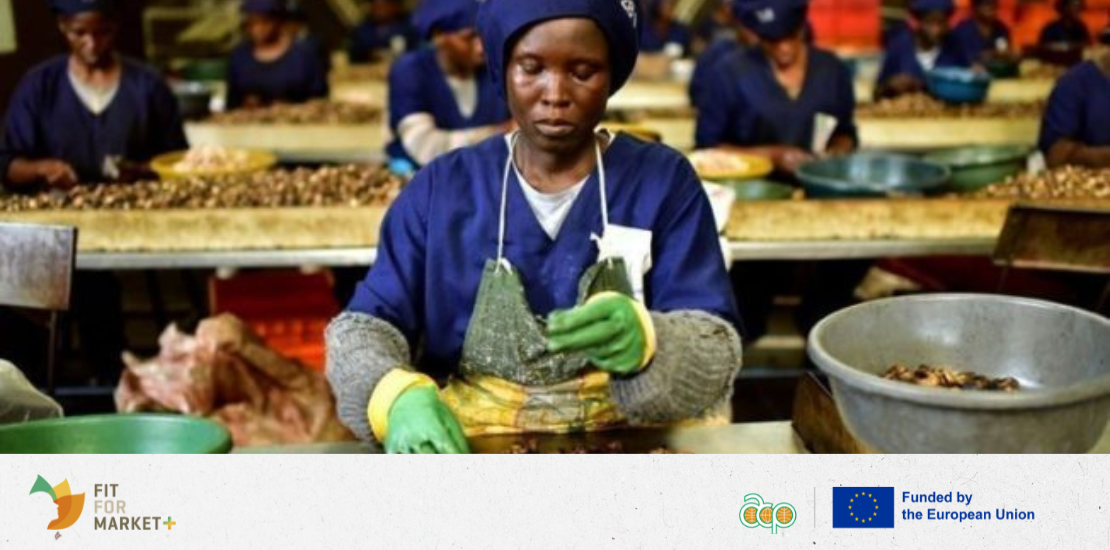 As part of its commitment to the conservation of biodiversity in tropical agricultural systems, COLEAD supports its partners in integrating environmentally sound practices into their production models. In Côte d’Ivoire, this commitment is being realised through a collaboration with the Cooperative of Mango and Cashew of Korhogo (COMAKO) to develop a Wildlife-Flora-Landscape Integrated Management Plan (IMP) under the Fit For Market Plus (FFM+) programme. Already certified by GLOBAL G.A.P., GRASP, SMETA and Rainforest Alliance, COMAKO is now strengthening its alignment… +
As part of its commitment to the conservation of biodiversity in tropical agricultural systems, COLEAD supports its partners in integrating environmentally sound practices into their production models. In Côte d’Ivoire, this commitment is being realised through a collaboration with the Cooperative of Mango and Cashew of Korhogo (COMAKO) to develop a Wildlife-Flora-Landscape Integrated Management Plan (IMP) under the Fit For Market Plus (FFM+) programme. Already certified by GLOBAL G.A.P., GRASP, SMETA and Rainforest Alliance, COMAKO is now strengthening its alignment… +Zimbabwe: introducing good agricultural practices …through farmer-led demonstration plots
- 10/06/2025
- Posted by: Christelle Bento
- Category: ACP EN, Corp EN, Headline, News
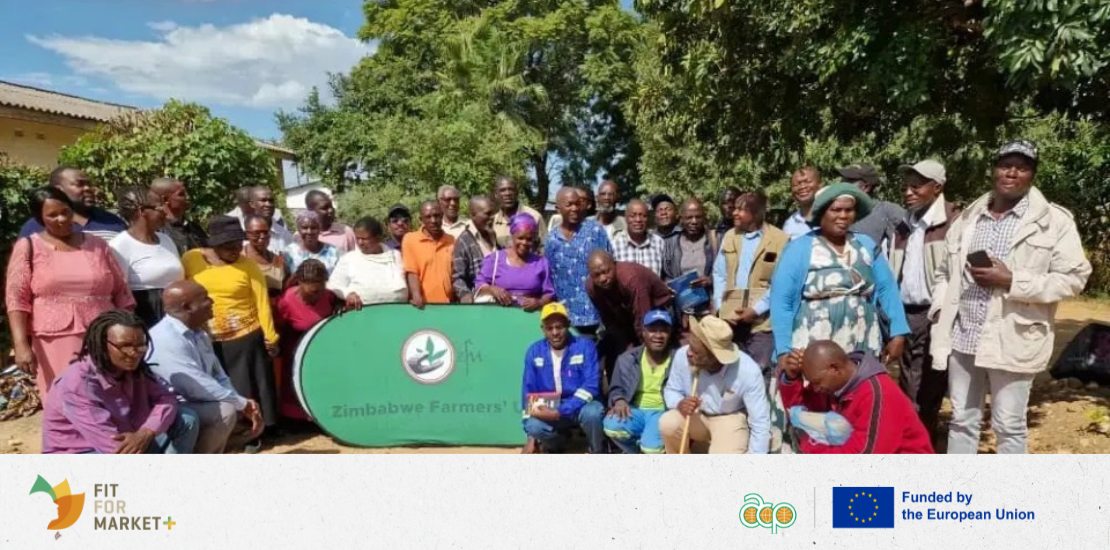 As part of the FFM+ programme, COLEAD recently conducted a field mission to provide technical support to the Zimbabwe Farmers Union (ZFU) in assessing avocado orchard management practices. Although this type of support is usually offered to companies, this initiative was exceptional in that it engaged a producer organisation and used its members’ farms as demonstration plots — an innovative and effective approach. The mission’s primary objective was to evaluate the implementation of Good Agricultural Practices (GAPs) and provide… +
As part of the FFM+ programme, COLEAD recently conducted a field mission to provide technical support to the Zimbabwe Farmers Union (ZFU) in assessing avocado orchard management practices. Although this type of support is usually offered to companies, this initiative was exceptional in that it engaged a producer organisation and used its members’ farms as demonstration plots — an innovative and effective approach. The mission’s primary objective was to evaluate the implementation of Good Agricultural Practices (GAPs) and provide… +
